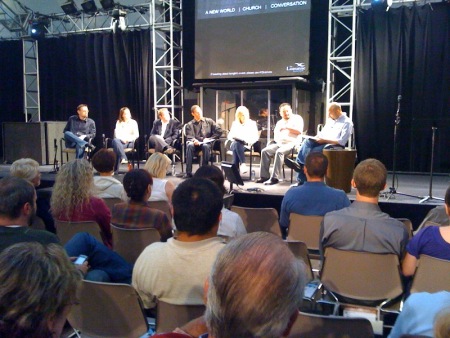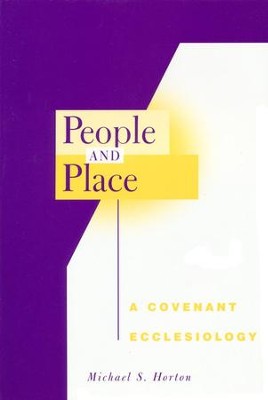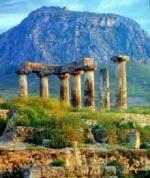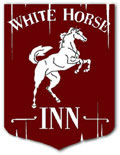 Mike C. recently asked (June 5, 2010):
Mike C. recently asked (June 5, 2010):
"Dr. Riddlebarger,
In Isaiah chapter 65 the prophet is teaching about the New Heavens and the New Earth. I always understood this to mean the Kingdom of Christ after his return in judgement. However, in verse 20 of this chapter we read "he who dies at a hundred will be thought a mere youth, he who fails to reach a hundred will be considered accursed." This seems to indicate that physical death will take place during this time. Please explain. Thanks, Mike C."
Mike, this is a question I am asked regularly. Since I posted a reply back in June of 2006, it might be useful to repost it now:
My answer:
According to dispensationalists, Isaiah is referring to the millennial age on earth during the 1000 year reign of Christ after his return to earth (cf. J. Dwight Pentecost, Things to Come, 487-490). For reasons we will soon explore this cannot be the case.
According to postmillennarians, this passage this passage refers to the latter day glory of the church on the earth. John Jefferson Davis writes, "the blessings of the church’s latter-day glory spoken of in Isaiah 11:6-9 are reiterated and expanded in Isaiah 65:17-25. The intensified period of spiritual blessing produces conditions in the world that are termed `new heavens and a new earth.’ (V. 17). This refers to the dramatic moral renovation of society rather than to the eternal state, since Isaiah speaks of a time when children are still being born (v. 20), when people are still building houses and planting vineyards (v. 21) and engaging in their earthly labors (v. 22). Paul uses similar language when he says that salvation in Christ is like a `new creation’ (2 Cor. 5:17), or again in Gal. 6:15, `for neither circumcision counts for anything, nor uncircumcision, but a new creation.’ The conditions of health and temporal peace of which Isaiah speaks in 65:17-25 are not the essence of the gospel, but they are properly the consequences of the gospel when its impact is intensive and extensive in the world. The message of reconciliation with God also produces as its fruit reconciliation between man and man and even with the natural order itself. It should also be noted that 65:17-25 makes no reference to the Messiah’s physical presence on earth. In the latter days, God desires to create in Jerusalem (the church) a rejoicing (v. 18). But the realities of verses 18-25 refer neither exclusively to the eternal state nor to the time following the second advent, but rather to the messianic age when Christ still rules at the right hand of the Father in heaven." (Cf. John Jefferson Davis, The Victory of Christ’s Kingdom: An Introduction to Postmillennialism [Canon Press], 37-38).
For four important reasons, I think both the premil and postmil interpretations stumble badly.
First, as Motyer points out, in terms of its literay structureIsaiah 65:1-66:24 is a chiasm. This simply means that the logic of the passage flows from the opening verse (Isaiah 65:1–A1) and the final verses (66:18-21-A2)–both of which deal with those who have not heard nor sought the Lord–toward the middle of the chiasm, i.e. A1 (65:1), B1 (vv. 2-7), C1 (vv. 8-10), D1 (vv.11-12) E (vv. 13-25), D2 (66:1-4), C2 (66:5-14), B2 (66:15-17), A2 (18-21). In this case, Isaiah 65:13-25-E is the middle of the chiasm, and is therefore the central theme of the entire prophecy and speaks of the joy of the Lord’s servants in the new creation. This means that the central truth (or high point) of this entire prophecy is found in the middle of the chiasm, not the end (vv. 66:22-24), which speaks of Jerusalem as the center of the world. (See J. Alec Motyer, The Prophecy of Isaiah: An Introduction & Commentary [IVP], 522-523).
The point is this. The key part of the whole passage is the section in question (vv. 17-25) which deals with the new creation with its Zion. Steps A1-D1 and A2-D2 must be fulfilled before the hoped-for reality (E) comes to pass. Given the structure of the prophecy as a whole, the climax of the passage is the eternal state (the new heavens and earth), not a half-way redeemed earth in which people experience life-extension, only to die later on.
Second, verses 17-20 of Isaiah 65 are composed of two poems. One is a poem of the new creation (vv. 17-18b), the other is a poem of the city and its people (vv. 18c-20). As Motyer points out, "throughout this passage Isaiah uses aspects of present life to create impressions of the life that is yet to come. It will be a life totally provided for (13), totally happy (19cd), totally secure (22-23) and totally at peace (24-25). Things we have no real capacity to understand can be expressed only through things we know and experience. So it is that in the present order of things death cuts off life before it has begun or before it has fully matured. But it will not be so then" (Motyer, The Prophecy of Isaiah, 530). In other words, metaphors are used of things neither we nor Isaiah can fully understand. The poetic structure surely points in this direction.
Third, as Meredith Kline points out, the language here reflects covenantal blessings now magnified in light of new heavens and earth. These blessings take us well beyond the natural order, but can only be understood in light of the natural order (Kline, Kingdom Prologue,152-153).
Fourth, is Isaiah telling us that as a result of the spread of the gospel ("moral renovation" in Jefferson’s terms), people will live longer, only to die? Where does the gospel promise long life? It promises eternal life! In fact, isn’t the whole point of prophecy clearly stated in verse 17. "I will create new heavens and a new earth?" This is a time subsequent to Revelation 20:1-10, which describes the binding of Satan and the reign of the saints in heaven after suffering upon the earth, only to end in a great apostasy before the final judgment. Both pre and post millennarians must assign this prophecy to the same period of time as Revelation 20. But given the chiastic structure and use of metaphor, isn’t it far better to see Isaiah 65:17-25 as describing the same time frame as Revelation 21, which is clearly describing the eternal state? I certainly think so.
 Thursday, June 10, 2010 at 07:37PM
Thursday, June 10, 2010 at 07:37PM 
 Kim Riddlebarger
Kim Riddlebarger









